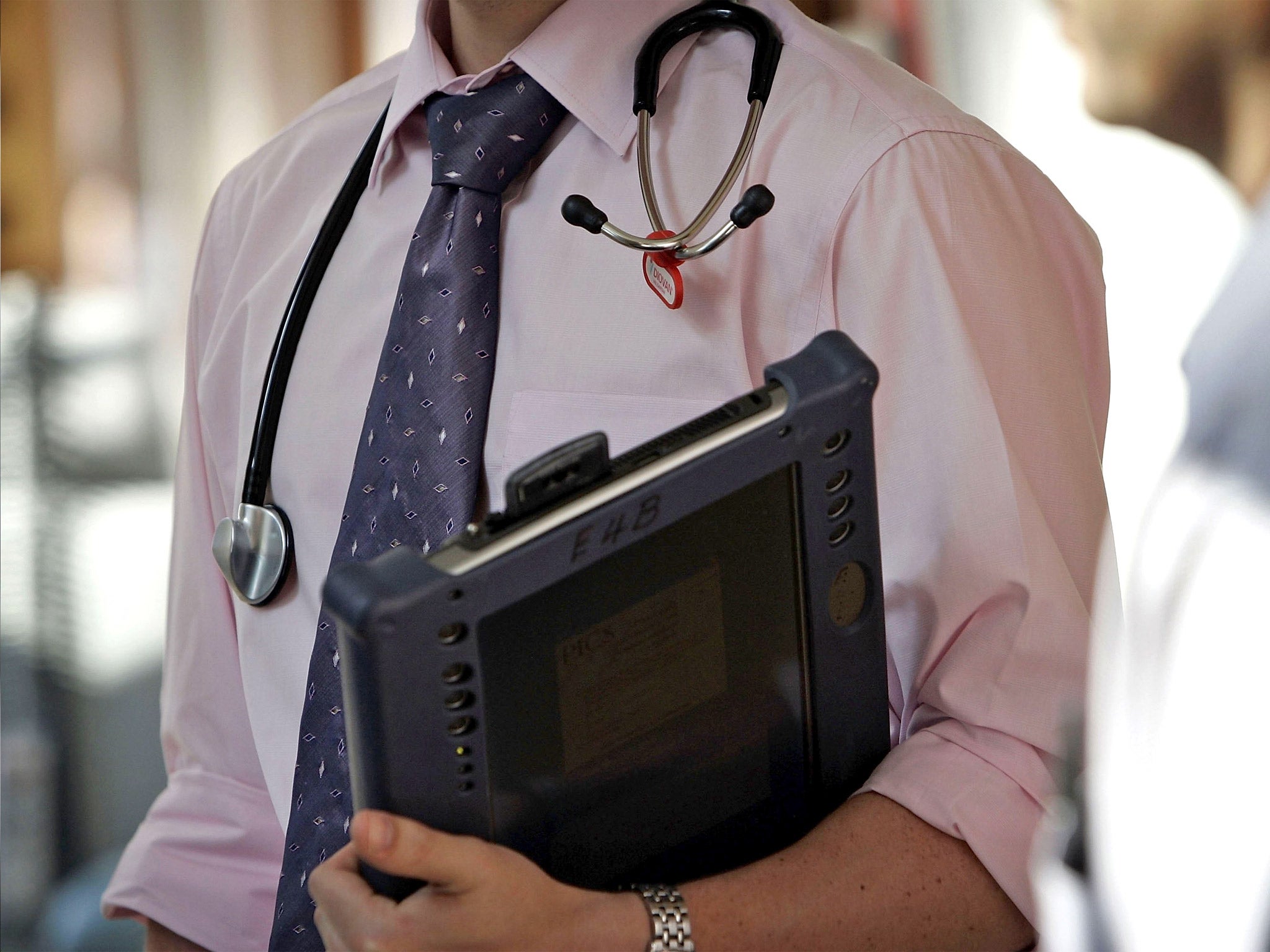Increasing workloads 'are making family doctors ill'
‘Unsustainable’ pressures leading to higher rates of suicide, anxiety and depression among GPs

Your support helps us to tell the story
From reproductive rights to climate change to Big Tech, The Independent is on the ground when the story is developing. Whether it's investigating the financials of Elon Musk's pro-Trump PAC or producing our latest documentary, 'The A Word', which shines a light on the American women fighting for reproductive rights, we know how important it is to parse out the facts from the messaging.
At such a critical moment in US history, we need reporters on the ground. Your donation allows us to keep sending journalists to speak to both sides of the story.
The Independent is trusted by Americans across the entire political spectrum. And unlike many other quality news outlets, we choose not to lock Americans out of our reporting and analysis with paywalls. We believe quality journalism should be available to everyone, paid for by those who can afford it.
Your support makes all the difference.The increasing workloads faced by GPs are making them ill, medical leaders said yesterday as they warned that “unsustainable” pressures were leading to high levels of suicide and divorce in the profession.
“Dangerous” caseloads were forcing older GPs to retire early and discouraging younger ones from taking up the job, the British Medical Association’s annual conference in Harrogate, North Yorkshire, was told.
Zoe Greaves, a public health specialist, told colleagues that suicide levels among GPs were twice as high as in the general population, while conditions such as depression, anxiety, reproductive difficulty and insomnia were widespread.
Medical professionals were also between 10 and 20 per cent more likely to divorce, she added. “We all know first-hand of the challenges faced by those in our profession, of the impact these stresses can have on our lives, homes, relationships, and our health, both physical and mental,” Dr Greaves told delegates. “We all know of tragedies that have occurred, of lives lost and of bright futures snuffed out.”
Doctors at the meeting voted overwhelmingly for a motion expressing “profound concern” at the situation and called for a BMA inquiry into the problem. Dr Richard Vautrey, the deputy chairman of the BMA’s GP committee, said the situation represented a crisis for the profession, adding that “NHS systems are making doctors ill”.
Concerns are particularly focused on doctors’ difficult shift patterns, which often include irregular hours and frequent night working, which some international studies have suggested may carry an increased risk of breast cancer.
Dr Mark Corcoran, a Bristol GP in charge of pastoral care for colleagues in the city, said he had seen the number of GPs seeking help and support double in the past year.
“We cannot work any harder,” he said. “GPs are working 60 hours a week in many cases and more, seeing up to 60 patients face-to-face a day… The result is that GPs are walking away from the profession. I have been to three retirement parties in as many weeks, while younger GPs are choosing to work abroad, in Canada, Australia, New Zealand and Europe, and even younger doctors are choosing not to enter the profession at all.”
Dr Chaand Nagpaul, the chairman of the BMA’s GP committee, will tell the conference today that family doctors have been forced into providing “conveyor-belt care at breakneck speed” by ever-increasing patient demand coupled with dwindling NHS resources. General practitioners are now carrying out 40 million more consultations per year than in 2009, he will tell the BMA, the doctors’ trade union.
Join our commenting forum
Join thought-provoking conversations, follow other Independent readers and see their replies
Comments